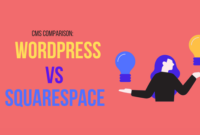oding is one of the most in-demand skills today. It’s a versatile trade that can be used in a number of industries, from tech to marketing to finance. And while you may think you know all there is to know about coding, there’s always more to learn. In this blog post, we will explore 10 things you didn’t know about coding. From the origins of code to its future applications, this list will give you a better understanding of the world of code and how it affects our lives.
What is coding?
In computing, coding is the process of transforming computer instructions into a form a computer can understand. Programs are written in a particular language which provides a structure for the programmer and uses specific instructions to control the sequence of operations that the computer carries out. The programming code is written in and read from a text editor, which in turn is used to produce a software program, application, script, or system.
Coding is sometimes also referred to as coding theory, especially when used in the context of data compression or error-correction coding. In these cases, it refers to the practice of representing data in a compact form that is resistant to errors.
The different types of coding
Coding is a branch of computer science that deals with programming languages. There are three main types of coding: structured, object-oriented, and functional.
Structured programming is a type of coding that uses a top-down approach. Programs are written in a step-by-step fashion, with each step building upon the last. This type of coding is easy to follow and understand, making it ideal for beginners.
Object-oriented programming is a type of coding that focuses on creating objects. These objects can interact with each other, making it possible to create complex programs. This type of coding can be difficult to understand, but it offers more flexibility than structured programming.
Functional programming is a type of coding that focuses on writing functions. These functions can be reused in different parts of the program, making it possible to write code that is both concise and easy to read. Functional programming can be challenging to learn, but it can be very powerful once mastered.
The history of coding
Coding has been around for centuries. The first known coded message was sent by the Greek historian Herodotus, who used a simple substitution cipher to send a message telling of the defeat of the Persian army. In the Middle Ages, cryptography was used extensively by various militaries and governments to encode messages in order to keep them secure. The most famous example of this is the Caesar Cipher, which was used by Julius Caesar to send encrypted messages to his generals during battle.
The modern history of coding began with the invention of the telegraph in 1837. This new technology allowed for long-distance communication without the need for physical messenger pigeons or handwritten letters. Samuel Morse and Alfred Vail developed a system of dots and dashes that could be used to represent letters of the alphabet, which could then be transmitted over telegraph wires. This system, known as Morse code, quickly became the standard for long-distance communication.
With the development of computers in the mid-20th century, coding became increasingly important. Early computers were incredibly large and expensive, and could only be used by trained professionals. However, as computers became smaller and more affordable, their use began to spread to a wider range of people. This led to the development of new programming languages that were designed to be more user-friendly and accessible to amateur users. Today, there are hundreds of different programming languages in use all over the world, each with its own unique syntax and purpose.
The benefits of coding
1. The benefits of coding
Coding is a great way to improve your problem solving skills. It also helps you develop a better understanding of how computers work. In addition, coding can be a lot of fun and is a great way to create things that are useful or interesting to you.
2. Coding can help you get a job
There are many jobs that require coding skills. In fact, the demand for coders is increasing all the time. By learning to code, you will make yourself more employable and be able to get a better paying job.
3. Coding can help you start your own business
If you have an idea for a new app or website, coding can help you bring it to life. With the right skills, you can create something that people will want to use and pay for. This can be a great way to make money and achieve financial independence.
4. Coding can help you make the world a better place
Coding can be used for more than just creating products or services. It can also be used to create things that make the world a better place. For example, you could use your coding skills to develop an app that helps people in your community connect with each other or an app that helps people find local businesses.
5. Coding is a great way to learn
Coding is not only a great way to improve your problem solving skills, but it is also a great way to learn new things. When you
The drawbacks of coding
When it comes to coding, there are a few drawbacks that you should be aware of. First and foremost, coding can be quite challenging. If you’re not careful, you can easily make mistakes that can cost you time and money.
Another downside to coding is that it can be very time-consuming. It’s not uncommon for coders to spend several hours working on a single project. This can make it difficult to balance work and life responsibilities.
Finally, coding can also be frustrating at times. Even the most experienced coders will run into occasional roadblocks. When this happens, it’s important to stay calm and persist through the problem-solving process.
The future of coding
Coding is an ever-evolving field. With new technologies and trends emerging all the time, it can be hard to keep up with the latest advancements. Here’s a look at some of the most exciting developments in coding, and what they could mean for the future of the industry.
One trend that shows no signs of slowing down is the popularity of open source projects. Open source projects are those where the code is freely available to anyone who wants to use it or improve upon it. This collaborative approach has led to some of the most popular software programs in existence, such as Linux and Android.
With more people than ever contributing to open source projects, we can expect to see even more innovative and impactful software being created in the future.
Another major development in the world of coding is the rise of artificial intelligence (AI). AI is already being used in a variety of ways, such as helping developers write better code and automatically detecting errors. As AI continues to evolve, we can expect even more amazing applications for it in the world of coding.
Finally, one of the most important things to keep an eye on in the world of coding is education. With so many new technologies and trends emerging all the time, it’s important that coders have access to resources that can help them stay up-to-date. That’s why initiatives like Codeacademy’s Hour of Code are so important – they provide people with a way to learn about coding
Conclusion
Who knew that there was so much to coding than just sitting in front of a computer and typing away? We hope you enjoyed learning about some of the lesser-known things about coding and that you now have a greater appreciation for all that goes into creating the websites, apps, and software that we use every day. If you’re feeling inspired to learn more about coding, be sure to check out our list of resources for beginners. And if you know anyone who’s still on the fence about whether or not they should learn to code, be sure to share this article with them!



